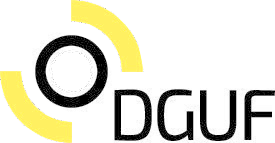The need for and provision of Digital Humanities (DH) courses in archaeological degree programmes in the German-speaking countries
Identifiers (Article)
Abstract
In an increasingly digitized research world, the handling of digital data also affects the training of the future generation of archaeologists. However, it still plays a largely subordinate role in archaeological studies. In contrast, the increasing demands of skilled people is rising in research institutions, archaeological companies and the preservation of archaeological monuments. As the Dachverband archäologischer Studierendenvertretungen e. V. (DASV e. V.), we represent the interests of archaeological students from Germany, Austria and Switzerland. In this paper, the experiences and problems of students with data management and digitization in the university context is discussed. Digital Humanities in teaching would be an alternative. They deal with digital documentation, interoperability of research data, research data management, processes for obtaining and communicating new “knowledge of digital working and media worlds” (Henrich ed., 2011, 4). They could be added to and co-treated with the teaching content of archaeoinformatics, giving rise to new developments and methods in archaeology (Huggett, 2012). The central question is the need for teaching of Digital Humanities as a course at universities. The basis for this is the result of a survey among student representatives. The evaluation of the survey showed that about 80% of the respondents see the relevance and the need for the expansion of a teaching program in the field of digital humanities. A corresponding expansion of courses could impart knowledge about how data can be made accessible, findable and reusable by means of digitization, and how it can be processed efficiently and comprehensibly. The survey revealed a particular interest among students in Digital Humanities skills that are also increasingly in demand on the job market, such as handling, evaluating, communicating and presenting digital data using statistical, GIS, CAD and 3D reconstruction programs. In contrast, there was surprisingly little interest in addressing open data, data protection and transparency. The insights gained should contribute to further discussion about the value and our current handling of Digital Humanities in teaching and the job market.
Statistics








